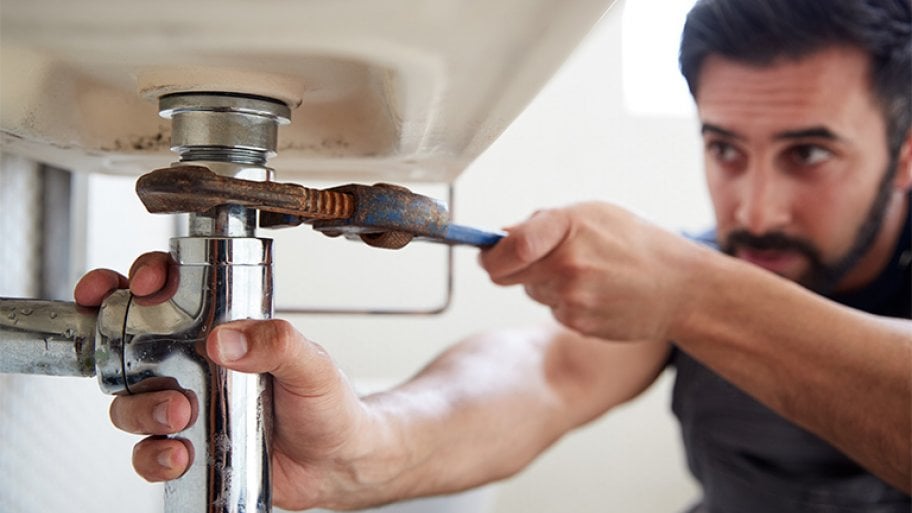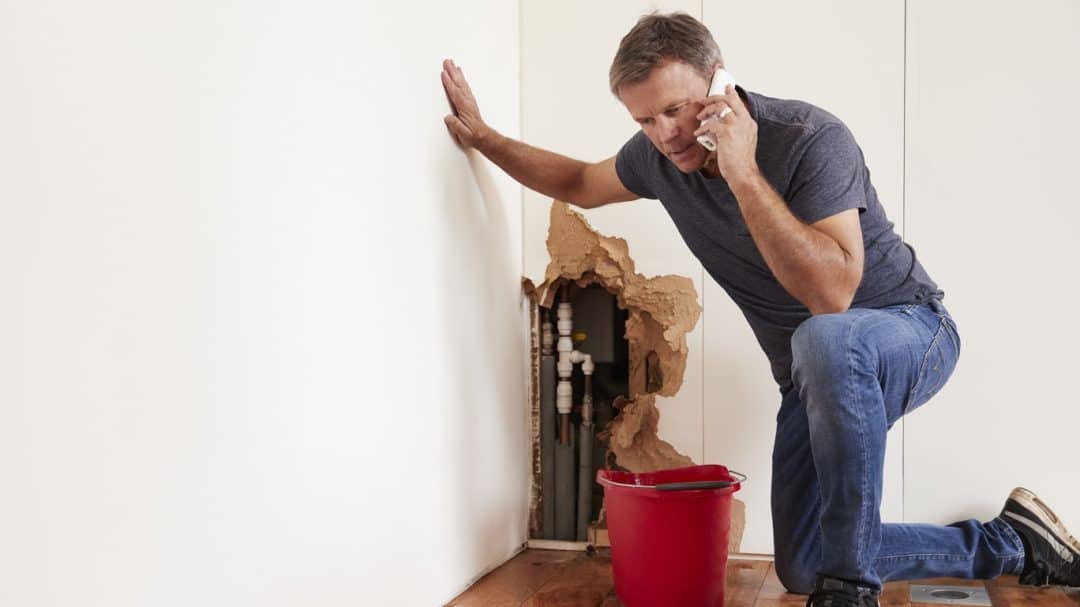The Key To Solving Plumbing Disturbances in Your Home
The Key To Solving Plumbing Disturbances in Your Home
Blog Article
On this page in the next paragraph you'll find a good deal of extremely good tips in relation to Why Do My Plumbing Pipes Make A Knocking Noise.

To detect loud plumbing, it is very important to determine first whether the unwanted audios take place on the system's inlet side-in other words, when water is transformed on-or on the drainpipe side. Noises on the inlet side have varied causes: extreme water pressure, worn valve and also faucet components, improperly linked pumps or other home appliances, incorrectly put pipeline fasteners, and plumbing runs containing way too many limited bends or various other limitations. Sounds on the drain side generally come from bad place or, just like some inlet side noise, a design having limited bends.
Hissing
Hissing sound that occurs when a tap is opened a little usually signals too much water stress. Consult your regional public utility if you think this issue; it will certainly be able to tell you the water stress in your area and also can install a pressurereducing shutoff on the inbound water system pipeline if necessary.
Thudding
Thudding noise, often accompanied by shivering pipes, when a faucet or home appliance valve is shut off is a condition called water hammer. The sound and also resonance are caused by the reverberating wave of stress in the water, which unexpectedly has no location to go. Often opening a shutoff that releases water swiftly right into an area of piping consisting of a limitation, arm joint, or tee fitting can produce the same condition.
Water hammer can generally be healed by installing fittings called air chambers or shock absorbers in the plumbing to which the issue valves or taps are connected. These devices allow the shock wave created by the halted circulation of water to dissipate airborne they have, which (unlike water) is compressible.
Older plumbing systems may have brief vertical areas of capped pipeline behind wall surfaces on faucet competes the very same purpose; these can at some point loaded with water, minimizing or damaging their efficiency. The cure is to drain pipes the water system totally by shutting down the primary water system shutoff and also opening up all faucets. Then open the main supply valve and also shut the taps individually, beginning with the faucet nearest the shutoff and finishing with the one farthest away.
Chattering or Screeching
Extreme chattering or screeching that happens when a shutoff or faucet is turned on, and that normally goes away when the installation is opened fully, signals loose or malfunctioning interior parts. The solution is to replace the shutoff or tap with a brand-new one.
Pumps and devices such as washing devices and also dish washers can move electric motor sound to pipelines if they are poorly connected. Link such items to plumbing with plastic or rubber hoses-never rigid pipe-to isolate them.
Other Inlet Side Noises
Creaking, squeaking, damaging, breaking, and tapping normally are triggered by the development or tightening of pipelines, normally copper ones supplying warm water. The noises take place as the pipelines slide versus loose bolts or strike neighboring residence framework. You can often identify the place of the issue if the pipelines are exposed; simply adhere to the sound when the pipes are making noise. Probably you will discover a loosened pipeline wall mount or a location where pipes lie so near to floor joists or other mounting pieces that they clatter against them. Connecting foam pipeline insulation around the pipes at the point of call ought to remedy the issue. Make sure straps and also hangers are safe and secure as well as give ample assistance. Where feasible, pipe fasteners need to be connected to large structural components such as foundation walls rather than to framing; doing so reduces the transmission of resonances from plumbing to surface areas that can enhance and also transfer them. If affixing bolts to framework is inevitable, wrap pipes with insulation or various other resilient material where they get in touch with fasteners, and also sandwich completions of new fasteners between rubber washers when mounting them.
Correcting plumbing runs that deal with flow-restricting tight or countless bends is a last resource that needs to be taken on only after speaking with an experienced plumbing contractor. Unfortunately, this circumstance is rather common in older homes that might not have actually been built with interior plumbing or that have actually seen a number of remodels, particularly by amateurs.
Drainpipe Sound
On the drainpipe side of plumbing, the chief goals are to remove surface areas that can be struck by dropping or rushing water and to shield pipes to contain inevitable sounds.
In brand-new construction, bath tubs, shower stalls, bathrooms, and also wallmounted sinks and also basins need to be set on or versus resilient underlayments to lower the transmission of noise through them. Water-saving bathrooms and also faucets are much less noisy than standard designs; mount them instead of older types even if codes in your area still permit utilizing older components.
Drains that do not run up and down to the basement or that branch into horizontal pipeline runs sustained at flooring joists or various other framing present particularly problematic sound problems. Such pipes are huge sufficient to emit substantial vibration; they likewise bring substantial amounts of water, which makes the scenario worse. In new construction, define cast-iron dirt pipes (the big pipes that drain bathrooms) if you can afford them. Their massiveness includes much of the sound made by water passing through them. Also, avoid routing drainpipes in walls shown to bed rooms and also areas where individuals gather. Wall surfaces including drainpipes should be soundproofed as was defined previously, utilizing dual panels of sound-insulating fiberboard and also wallboard. Pipes themselves can be covered with unique fiberglass insulation created the purpose; such pipelines have an impervious vinyl skin (sometimes including lead). Results are not constantly adequate.
Pipe Down! What to Do About Noisy Water Pipes
Banging
Does it sound like someone's hitting your pipes with a hammer every time you run water? The issue could be a phenomenon called water hammer, which happens when a water valve closes suddenly. You'll often hear it when your washing machine stops filling, for example. The momentum and pressure from the water flowing toward the valve create the shockwave that causes the banging noise when the valve closes suddenly. It might not seem like a big deal, but water hammer can cause damage to your pipes, including leaks and joint damage.
One way to ease water hammer is by installing water hammer arrestors. Your plumber can install them near major valves to help cushion the shock of the water when it suddenly stops or changes direction. You might also need to reduce the water pressure coming into your home with the pressure-reducing valve.
Gurgling
Gurgling sounds typically come from drainpipes. This sound happens when the water can't drain properly, usually when there's a clog in the water pipes. Drain clogs often happen due to hair, grease, soap scum or objects that fall down the drain. They can happen suddenly or build up slowly over time.
You can sometimes clear a clogged drainpipe with a plunger to help force the clog through the pipe. A plumbing snake or an auger can also help break up tough clogs. A common plumbing myth is that chemical drain cleaners are safe and effective, but they often don't work and contain harsh chemicals that can hurt you and your plumbing. If you can't remove the clog with a plunger or snake, it's best to call a plumber to help.
Rattling
Water travels through your pipes with lots of pressure, so the pipes are bound to move a little. Pipes should be secured well to keep them from moving too much when water runs through them. If they're not properly fastened or the fasteners come loose, you might hear them rattling when you run water.
Resecuring the pipes can cut down on the rattling noise and prevent damage to the joints of the water pipes. However, many pipes run behind walls where you can't easily access them. A plumber can help determine if loose fasteners are the cause of the rattling and resecure them if necessary.
Humming
If your pipes sound like they're humming, it's likely a water pressure issue. When the water pressure is high, it can cause the water pipes to vibrate and create a humming sound. High water pressure is more common if you have a well for your water, but it can happen with municipal water as well. High water pressure can damage your plumbing and cause leaks.
If you have a well, check the pressure to ensure it's below 55 pounds per square inch. A plumber can test the pressure for you and help adjust the issue if you're not sure how to do it yourself. If you're connected to the municipal water source, your home likely has a pressure-reducing valve near where the water enters your home. You can adjust the screw in the valve to decrease the pressure, but be careful not to lower it too much.
Squeaking
Squeaking or squealing is another common sound you'll hear in your water pipes. This often happens if small components within the plumbing, such as washers or aerators, become loose, dirty or damaged. When this is the cause, the squeaking sound is usually confined to a certain fixture or area of plumbing. Replaced or repairing the part should solve the noise.
If you can hear the squealing sound everywhere in your home, it could be an issue with water pressure. Buildup in the pipes narrows the space for the water, which can cause squealing as the water tries to squeeze through the pipes. Wear and tear on the plumbing system can also cause whistling or squeaking. These situations typically require a professional plumber to diagnose and repair.
https://www.homeserve.com/en-us/blog/home-improvement/water-pipes-making-noise/

As a devoted reader on Why Do My Pipes Make Noises, I imagined sharing that piece was important. Feel free to take the opportunity to distribute this write-up if you enjoyed it. Bless you for your time. Visit us again soon.
Quick and efficient? Ring us! Report this page